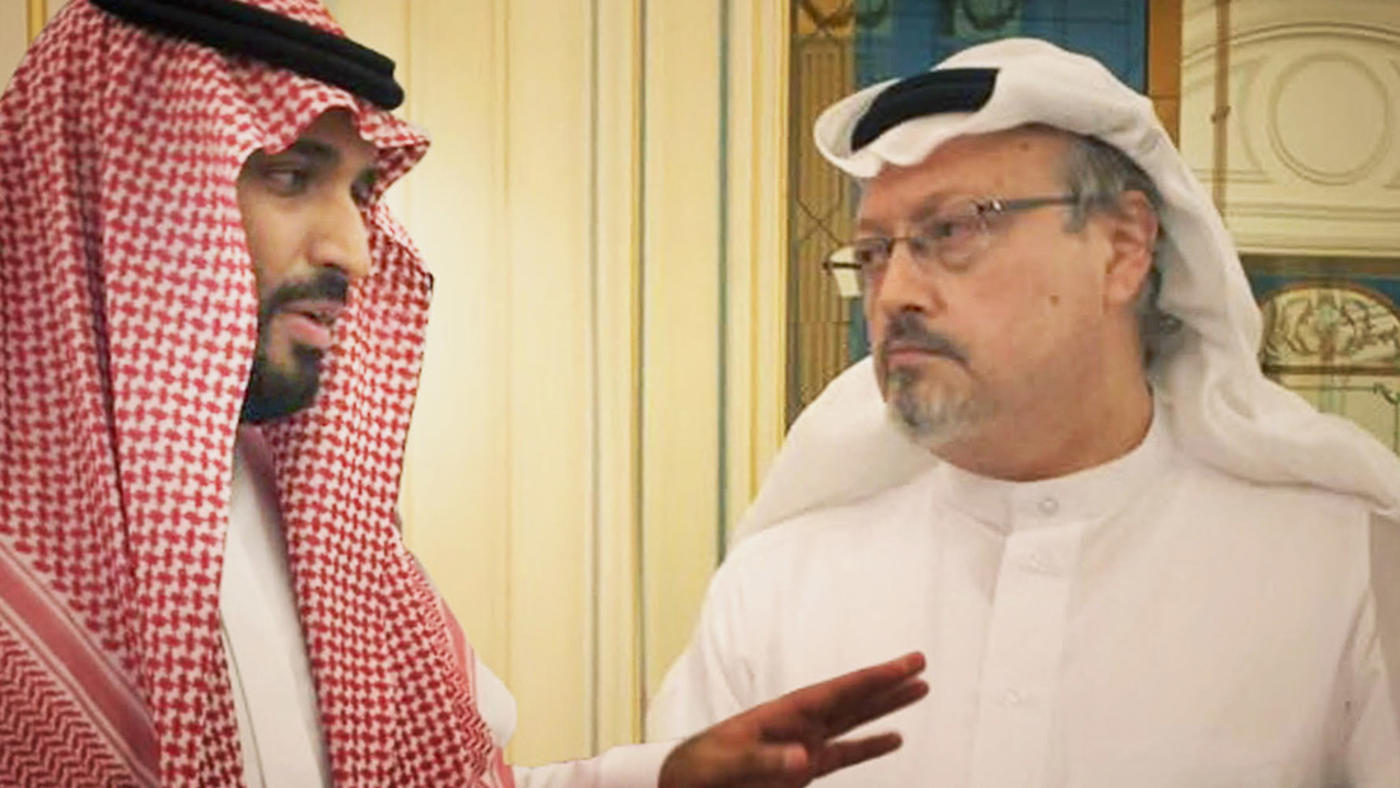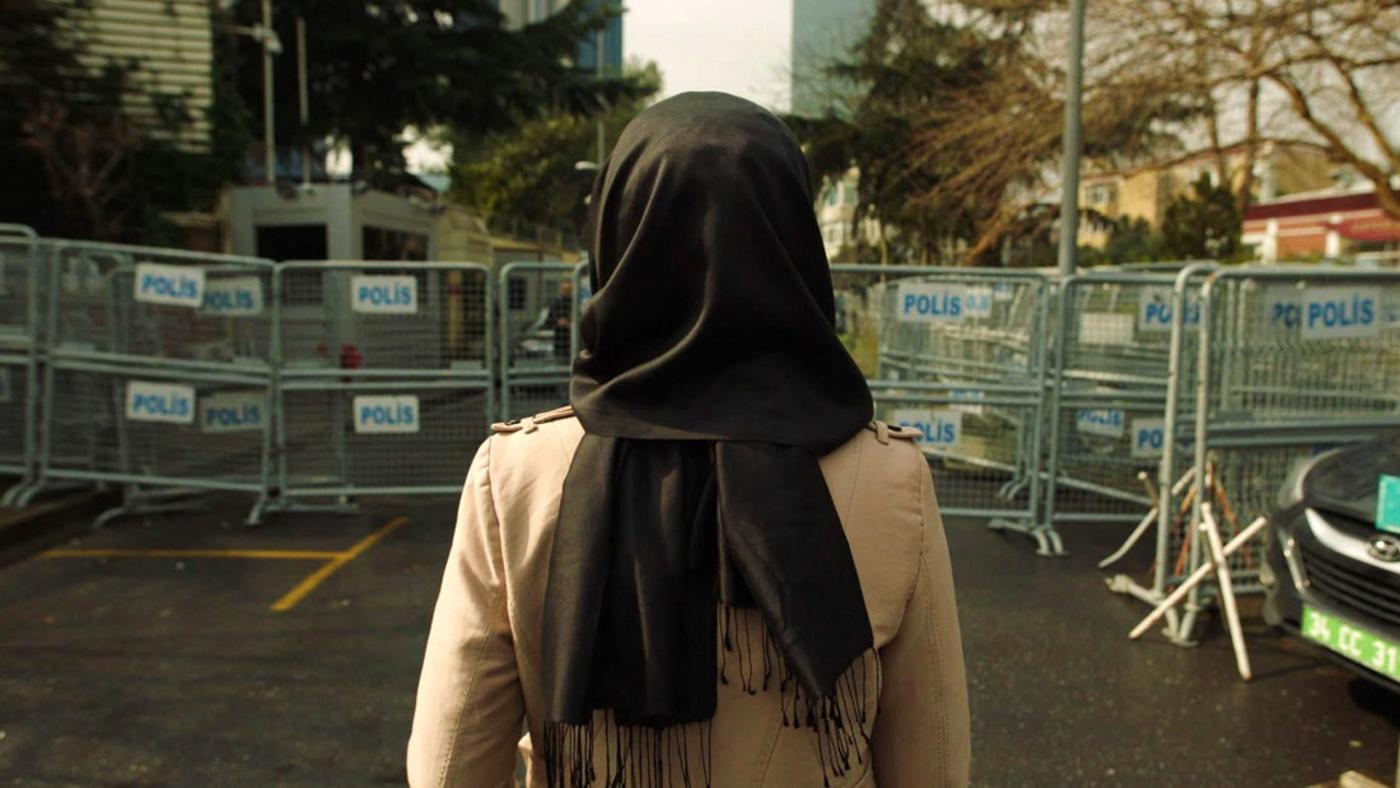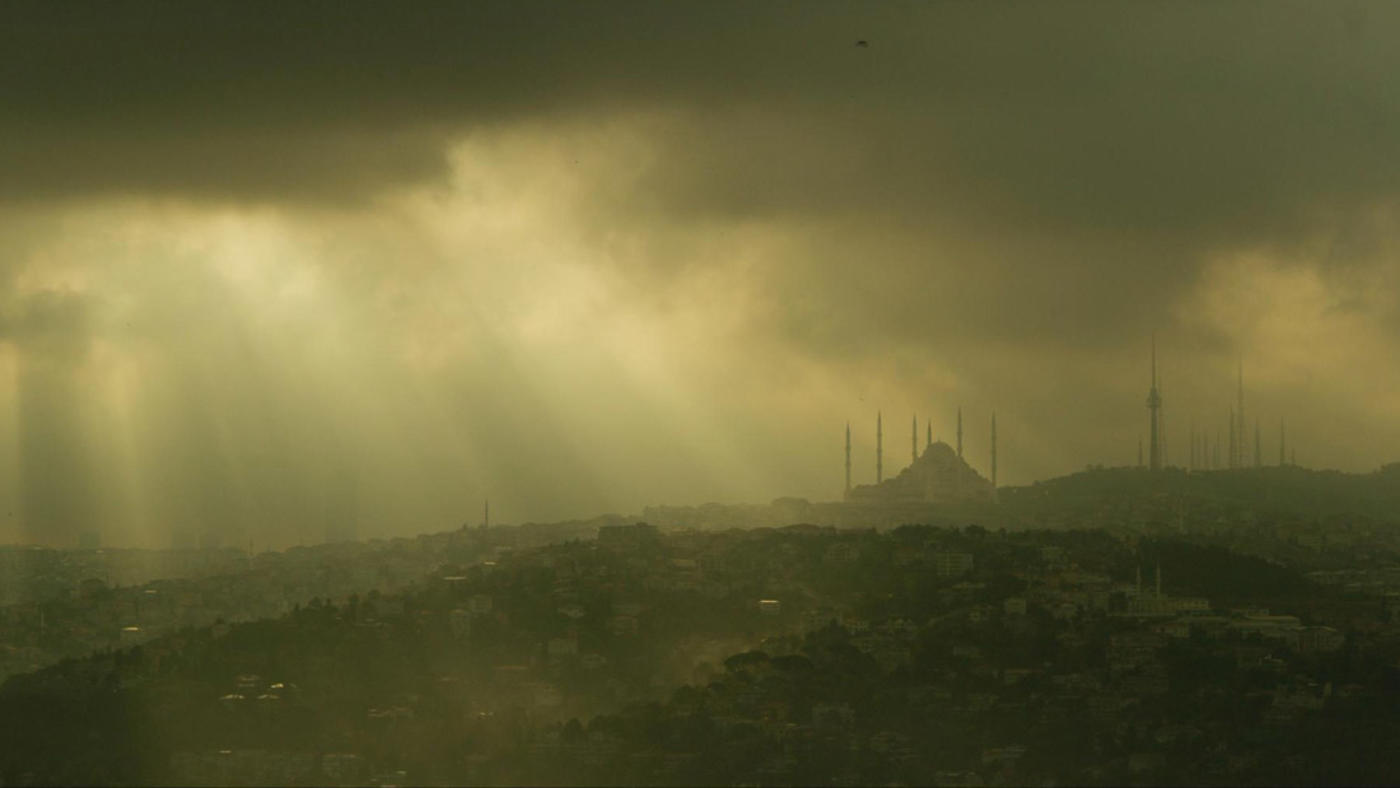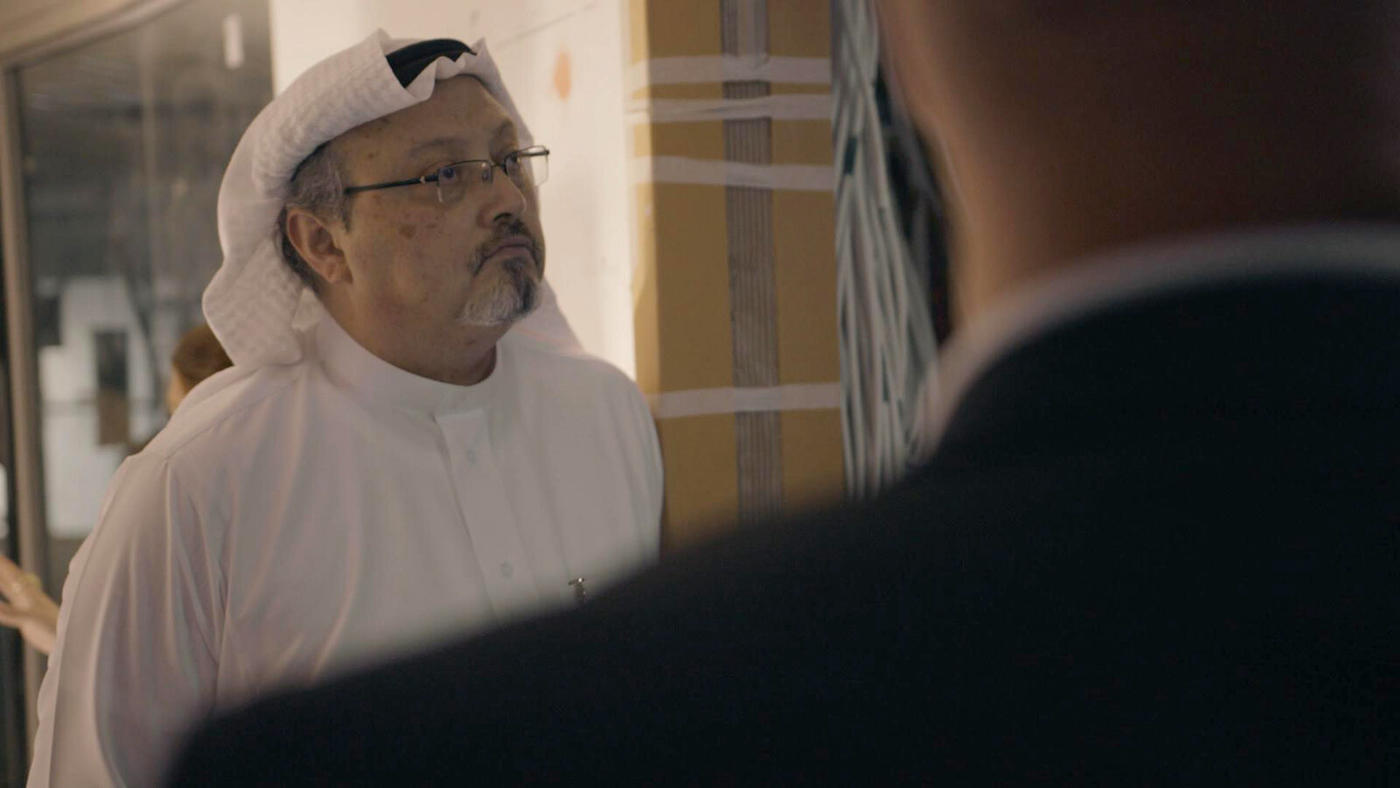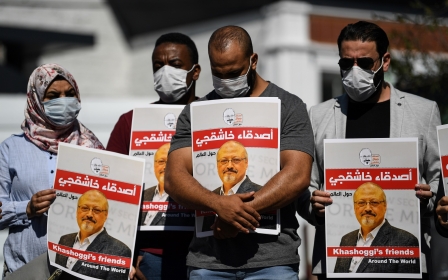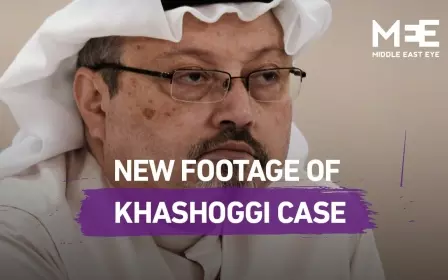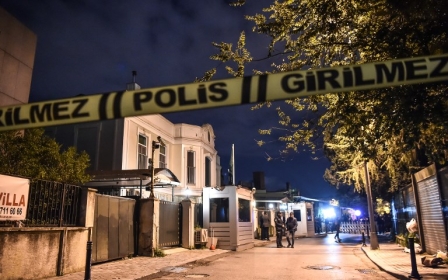Jamal Khashoggi films: Trying to separate the man and the martyr
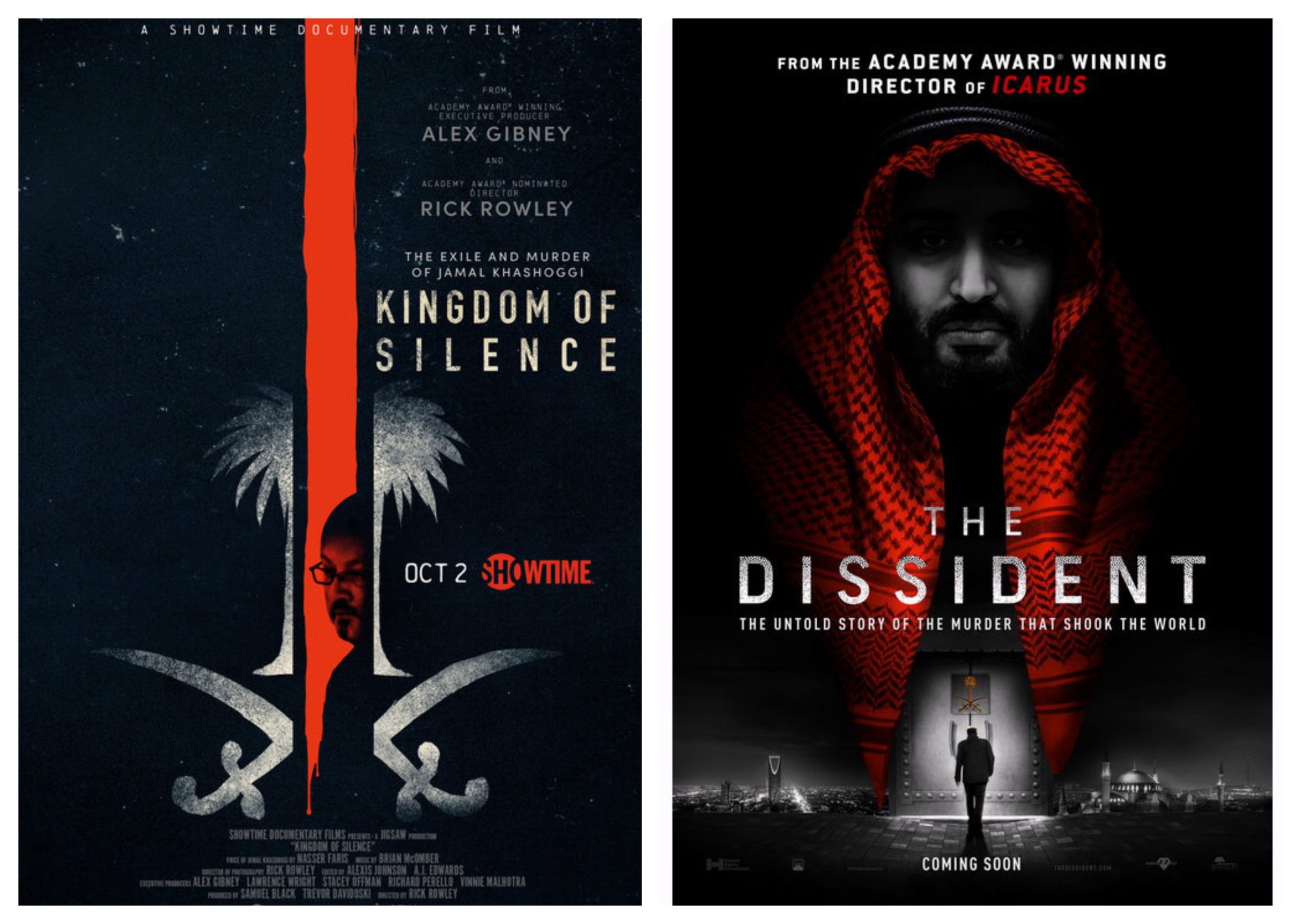
On paper, the tragedy of Jamal Khashoggi reads like the stuff of movies: a murder mystery involving top governmental officials; a botched cover-up job; and a demoralising noir-like ending where the culprits are let off the hook.
Given the worldwide attention that the October 2018 assassination has received, it was only a matter of time before Khashoggi, and Saudi Arabia's toxic relationship with the US, would receive adulatory Hollywood-style treatment. That such films have premiered in 2020, the year of the US presidential election and amid a barrage of anti-Trump flicks flooding streaming services, was perhaps inevitable.
The killing of Khashoggi has already been chronicled by two earlier TV documentaries: The Murder of Jamal Khashoggi for German network Deutsche Welle, and Jamal Khashoggi: The Silencing of a Journalist, for Al Jazeera. There are also several documentary shorts, including The Assassination of Jamal Khashoggi, by the Washington Post, Khashoggi’s final employer (previously, he also wrote for Middle East Eye among others).
The Dissident, Bryan Fogel’s much-hyped follow-up to the hugely successful Oscar-winning documentary Icarus (2017), debuted at the Sundance Film Festival in January. Financed by the Human Rights Foundation, it was received with universally rapturous reviews, only to struggle to secure a distribution deal during subsequent months.
New MEE newsletter: Jerusalem Dispatch
Sign up to get the latest insights and analysis on Israel-Palestine, alongside Turkey Unpacked and other MEE newsletters
Fogel theorised that buyers had been dissuaded from taking on such contentious subject matter amid fears of a Saudi backlash similar to that which met an episode of Hasan Minhaj’s Netfix comedy show, Patriot Act, which also tackled the Khashoggi murder. Film executives may also have been mindful of the planned investments by the kingdom in Hollywood, as well as Saudi Arabia's emergence as the most lucrative market in the Arab world.
The Dissident was finally acquired for distribution in September by relative newcomer Briarcliff Entertainment for the US, and HanWay Films for international sales. The mystery shrouding the film – seen only by a handful of critics and industry figures – has finally been lifted as it resumes its pandemic-delayed festival life, making the rounds in Zurich and various events across the US before its December release (It’s at DOC NYC from 11 November and Stockholm Film Festival from 16 November.)
The two films may tell the same story, but one does it with fewer refurbishments and less bravado than the other
But as The Dissident tries to pick up steam ahead of the awards season, Kingdom of Silence, an under-the-radar Khashoggi documentary directed by Oscar nominee Rick Rowley, may steal its thunder. It aired on Showtime at the beginning of October to stellar reviews, if none of the fanfare that met Fogel’s film.
The Dissident will continue to attract attention, thanks to its effective campaign and many US critics’ palpable ignorance of the region. But it’s Kingdom of Silence which provides a more comprehensive and honest look at the Khashoggi saga, despite its occasional lapses and lack of contextualisation.
The two films may tell the same story, but one does it with fewer refurbishments and less bravado than the other. Kingdom of Silence never pretends to be anything but a piece of a more complicated story of a man many were acquainted with yet few really knew. In the process, it shows more reverence to Khashoggi than Fogel’s over-polished piece, which intentionally omits the less flattering aspects of his story to deliver a more marketable product.
The disjuncture between the films pinpoints the current ethical crises facing mainstream documentary filmmaking, including the temptations of stylisation over truth; the easy-to-digest forms adopted for selling otherwise complex subjects; and the withholding of information in favour of streamlined narratives.
Both ultimately illustrate the fundamental shortcomings of American documentary filmmaking dealing with the Middle East – the reductionism, the short-sightedness, and the lack of nuance. One cannot help but wonder how both productions may have fared had they been directed by Saudi or Arab filmmakers.
The Dissident: Too much drama
The Dissident looks, feels and is structured as a thriller. The first character we’re introduced to is Omar Abdulaziz, a young Saudi activist exiled in Montreal. Framed in shadowy compositions set against an ominous, overdramatic score, he is quickly established as the inside man, a whistle-blower hell-bent on exposing the ghastly secrets of the kingdom to the world.
“It’s all about revenge,” he says in the documentary's introductory moments. “In Saudi Arabia, having an opinion is a crime. But Jamal’s death changed everything.” From the start, such a theatrical tone prioritises atmosphere, emotional engagement, and mundane cinematic flourishes over well-rounded truth.
The non-linear narrative constantly jumps from the present to the past. The formative years of Khashoggi’s career as a loyal, if somewhat critical, supporter of the royal Saudi family are largely brushed over, as Fogel hints that he may have collaborated with previous Saudi regimes out of a conviction that to change the kingdom’s system, a journalist needs to work inside it.
The history of the kingdom’s rulers is fleetingly outlined, summed up as power passed on from one prince to the next. Instead, the bulk of the narrative focuses on Khashoggi’s dissidence (spurred by both the Arab Spring and the ascendance of King Salman in 2015 to the throne), his self-exile to the US and Turkey, and his subsequent murder.
Throughout, Khashoggi is painted in hagiographic fashion as a martyr who gave his own life for freedom and democracy. The portrayal of his personal life focuses on his relationship with Hatice Cengiz, the Turkish scholar to who he became engaged to after the collapse of his marriage following his departure from Saudi Arabia.
Too much of The Dissident’s duration is dedicated to the already familiar details of the murder, such as the luring of Khashoggi to the Saudi consulate in Istanbul; the 12 henchmen sent by Crown Prince Mohammed Bin Salman (MBS), to execute him; the swift and gradual discovery of the grisly assassination; and the confirmation that MBS was the architect of the murder. The thorough account is principally relayed by Turkish officials who oversaw the investigation, a number of Khashoggi’s acquaintances, and Cengiz, who connect the dots between the different strands of the murder.
The only fascinating element of Fogel’s otherwise rudimentary narrative is the uncovering of the web of espionage that the Saudi government had orchestrated to monitor its opponents, from a Twitter army that squashes any critical voices to the widespread hacking campaign MBS has waged against critics, including Abdulaziz and Jeff Bezos, Amazon CEO and owner of the Washington Post.
In one particular outlandish moment, Abdulaziz says that Khashoggi may have been murdered for his association with him, which the regime discovered before the assassination. It’s here that the audience may question why Fogel has not verified Abudlaziz’s testimony. For example, in another scene Abdulaziz states that 80 percent of Saudis are on Twitter, which is why the authorities want to control social media. The actually figure is a much lower 37 percent, which while still high is less than half of what Abdulaziz says. It leaves one asking why Fogel never corrected this misinformation, as well as what other half-truths are in the film.
Elsewhere, there are overly large gaps in Fogel’s overly tidy argument. The copious power struggles within the kingdom are overlooked, leading to a one-dimensional presentation of Saudi Arabia as a strange mix between a self-serving autocracy and a quasi-theocracy. Fogel also never explains how Islam has been used to strengthen the royal family’s power, not just in the kingdom but throughout the Arab world.
All the political issues tackled in The Dissident are dumbed down to fit a western binary of good and evil. The Arab Spring was great for the region but Saudi Arabia demolished it across the Middle East for fear it would encourage its own citizens to revolt. The Saudi monarchs were all wicked, fixated on bolstering and safeguarding their power and wealth.
Turkish officials, meanwhile, are presented as truth crusaders of the one country that “has been relentless" in bringing the Khashoggi murderers to justice, as Fogel put it in different interviews. The actual reality is far more complex and multifaceted. For example: Turkey is one of the world’s biggest jailers of journalists, ranking higher than Saudi Arabia. The film also does not mention how Turkish President Recep Tayyip Erdogan used the affair to advance his position with both the US and Saudi Arabia.
In several interviews, Fogel has stated that it was the distortion of Khashoggi’s reputation in the media and his reframing as a Muslim Brotherhood and terrorism apologist that propelled him to make the film (he never mentions which media, be it western or Arab, was behind these smears).
“I wanted to make the world love Jamal,” he said at a Zurich Film Festival press event. He described his endeavour as “unique and exclusive” in an interview with Turkish TV, asserting that the documentary presents “the untold story of the murder of Khashoggi”.
Kingdom of Silence: Who was Khashoggi?
Rick Rowley’s Kingdom of Silence, in contrast, demonstrates the major miscalculations evident in The Dissident, with an account that is less cinematic but far more grounded.
Executive produced by renowned journalist and Middle East expert Lawrence Wright, the documentary sets the scene with a quote from Mohamed Soltan, the Egyptian-American human rights activist, who aptly states that “anybody that tells you that they know every aspect of Jamal’s life, they are 100 percent lying to you”.
A straightforward chronicle of the Khashoggi murder, Rowley indicates, is anything but the narrative followed by The Dissident. Wright, for instance, underlines the close relationship Khashoggi had with the House of Saud.
“Saudi Arabia is divided into the royals, and non-royals, and the royals own everything,” he says, “and in the category of the non-royals, Jamal Khashoggi carried a lot of influence. I don’t think there was any place in Saudi Arabia that was closed to him. It wasn’t just that he was powerful… people liked him.”
Rowley reveals several notable facts about Khashoggi that Fogel overlooks, such that he was the first journalist to interview Osama bin Laden in the 1980s, back when the al-Qaeda founder started fighting the Soviets in Afghanistan. Wright says that Khashoggi was initially star-struck by bin Laden before he grew increasingly disillusioned after he tarnished Saudi Arabia and Islam with the 9/11 attack on the US.
Khashoggi’s subsequent staunch support for the Saudi regime, Lawrence insinuates, was a reaction against bin Laden and driven by guilt as much as patriotism. In line with the Saudi discourse at the time, Rowley explains, Khashoggi became an ardent defender of the 2003 US-led Iraq war – something disregarded by The Dissident.
“When I met him, [Khashoggi] struck me as a neo-con,” Wright says. “He was nationalistic.” The US wouldn’t have invaded Iraq without Saudi support, he stresses, and Khashoggi certainly helped promote the American cause at the time.
There are also major revelations about Khashoggi that Kingdom of Silence uncovers, but that The Dissident ignores. The first is that long before his murder, Khashoggi was supposed to meet up with members of the 9/11 commission, who were attempting to prove that the Saudi government had tangible ties with the 9/11 attackers, but he never showed up for reasons unknown. The second is that he was married to an Egyptian woman named Hanan El Atr in Virginia and that he was still with her when he met, and then became engaged to, Cengiz.
The last seven years of Khashoggi’s life is what came to define his entire legacy: his courage, selflessness and the sacrifices he made for defending his journalistic freedom and fighting for the liberation of his countrymen which would ultimately cost him his life. Yet he was chiefly an enigma – a man full of contradictory convictions and ceaseless secrets that may never be divulged.
There are some points on which Fogel and Rowley agree: both believe that the Arab Spring shook Khashoggi, transforming him from a champion of the Saudi royal family to a passionate advocate of the democratic movements sweeping and freeing the region. The House of Saud, as Rowley points out, believed that Washington failed Egyptian president Hosni Mubarak, an ally of Riyadh, who was deposed in February 2011.
But there is far too little of this broader context, which is crucial to understand what happened to Khashoggi, where both documentaries fail to give the full context. Following the fall of Mubarak, Riyadh mobilised its efforts to oust the democratically-elected Muslim Brotherhood, which ruled from 2012 until 2013, before it was overthrown in a military coup. But neither film mentions Qatar’s role in its patronage of the Muslim Brotherhood. Nor do they delve into the myriad factors that led to the Brotherhood's fall, including the group’s unsuccessful power-grab, the rise of political Islam, and its shoddy economic policies.
The last seven years of Khashoggi’s life is what came to define his entire legacy. Yet he was chiefly an enigma
Most importantly, both neglect to accentuate the growing opposition towards Mohamed Morsi's government before the coup, or that current president, Abdel Fattah Al-Sisi came to power in 2014, although several rival contenders either boycotted the election or had been banned. Insinuating that the main reason the Egyptian revolution failed was because Riyadh used anti-Morsi forces to mobilise the masses against the Muslim Brotherhood is not only inaccurate, it’s also far from true.
Both offer little understanding of where Saudi Arabia was, where it is now, and where it’s going. Neither mention that Saudi Arabia was experiencing a wave of reforms, albeit very gradual, long before Salman and his son came to power. Why Salman, and by default, the crown prince, chose to adopt a more repressive rule is never explained in either documentary; nor is the highly intricate struggle for the throne between the many brothers within the top ranks of the House of Saud. To its credit, Kingdom of Silence does acknowledge that the kingdom allowed the media to exercise limited criticism, although that was lost when Salman became king in 2015.
But a sense of how the Saudi society was and how it has become is a large blind spot in both films. The picture is never so black and white in any society - even authoritarian ones.
Ignored: Activists now in Saudi jails
At the end of Kingdom of Silence, David Rundell, former chief of mission at the US Embassy in Riyadh, makes a damning, if sober, conclusion: “Saudi Arabia is a strategic ally [to the US] and I think that outweighs the death of one person.” Kingdom of Silence pinpoints how such inherent cynicism defines America’s toxic relationship with the world’s biggest oil supplier (Riyadh would have calculated that Washington would be unlikely to retaliate against Khashoggi’s death).
Seeking justice for Jamal Khashoggi could prove to be a lost battle: the US will never allow MBS to stand trial, even with the incoming Joe Biden administration.
The detention of Saudi activists, which receives less media coverage in comparison, is the more urgent issue at hand. But The Dissident, which offers nothing remotely fresh from what has been chronicled before, fails to even allude to the many Saudi activists who chose to stay inside the country and were punished with imprisonment, including, most prominently, Loujain Alhathloul, who has been tortured, threatened with rape, and remains in detention. This grave absence is an insult on the part of the film-makers.
We are long overdue a documentary about the long history of activism in Saudi Arabia, but the source material may be too subtle and unsensational. One hopes that no more lives are lost before the world finally pays attention.
This article is available in French on Middle East Eye French edition.
Middle East Eye delivers independent and unrivalled coverage and analysis of the Middle East, North Africa and beyond. To learn more about republishing this content and the associated fees, please fill out this form. More about MEE can be found here.


